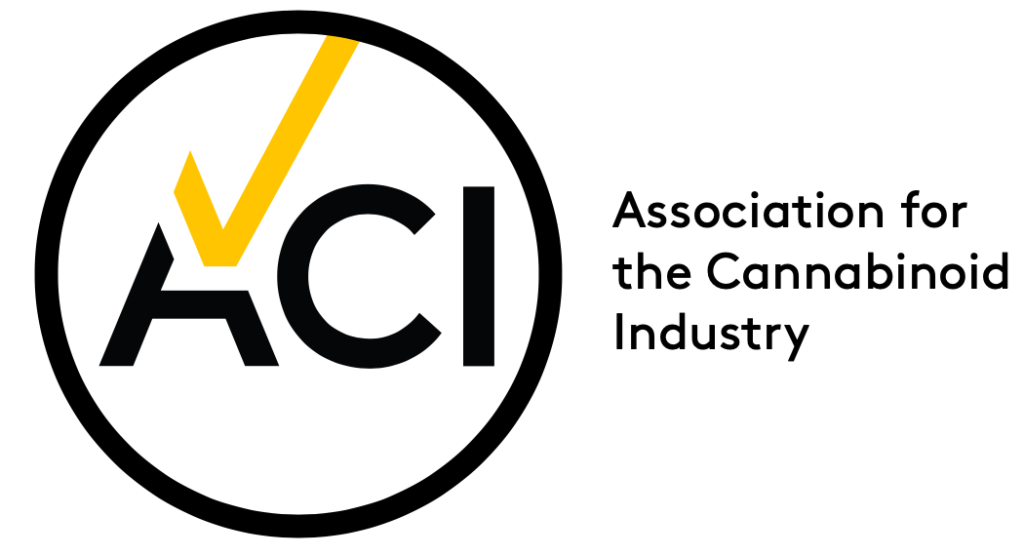The Association for the Cannabinoid Industry (ACI) today publicly rebuts the content and claims made in a letter published and shared widely on social media on Friday 26 March 2021.
The letter signed on behalf of the British Hemp Alliance, Cannabis Trade Association, Northern Ireland Hemp Association and Scottish Hemp Association grossly misrepresented the contents of a recent paper ACI published, in collaboration with the Conservative Drug Policy Reform Group (CDPRG), which included recommendations for the Home Office and the Advisory Council on the Misuse of Drugs (ACMD) relating to the safety levels of THC and other controlled cannabinoids in finished products.
The authors of the letter have completely misunderstood the premise and findings from our joint paper. Given the letter is based on a fictitious or misconstrued interpretation of our paper, it is unsurprising that it has drawn the wrong conclusions, falsely asserting that our recommendations related to biomass, not finished products.
It then, all too predictably, drifted into a conspiracy-fuelled tirade about the ACI wanting to bring an end to hemp farming and CBD companies in the UK.
This could hardly be further from the truth.
The signatories to the letter seem to believe that the ACI is fundamentally opposed to THC and is on a mission to eradicate it.
The Association for the Cannabinoid Industry represents some of the largest companies who are committed to a legally compliant cannabinoid industry in the UK. Since our inception the ACI team has committed to fostering a sustainable CBD industry in the UK. We started by highlighting the instrumentation limitation and analytical testing of controlled cannabinoids to define what zero means for THC in scientific terms.
The core argument of our paper is a £300 million+ commercial cannabidiol (CBD) industry in the UK has been significantly hampered by confusion relating to THC and other controlled cannabinoids in finished products. This requires that we demonstrate there are responsible companies operating in this industry that respect the law and are willing to ensure that their business practises are regulatory compliant.
The purpose of our jointly written research paper was to explore the existing scientific evidence relating to the safety profile of THC, and other controlled substances, in finished products and to submit this to the Home Office and other regulatory agencies for consideration into incorporation for future law and guidelines.
ACI’s paper recommends that in finished products, if levels of THC and other controlled cannabinoids are below 0.03%, then the product should be treated as “zero-THC” and therefore not subject to any restrictions of the Misuse of Drugs Regulations. We go further and recommend that finished products that contain between 0.03 – 0.2% THC can still be sold over-the-counter but acknowledge the THC content as a schedule 5 (lowest level of restrictions) controlled drug.
We also recommend that further research be undertaken to provide more scientific evidence to assert safe levels of THC sold in products in the UK.
The authors of the letter have interpreted our recommendation as a limit of 0.03% in biomass, which is untrue. THC levels in biomass is a completely separate issue that is not touched upon in our paper.
It is worrying that the signatories to this well researched scientific paper were unable to understand its findings. As the paper was largely written for a highly-educated, scientific minded and regulatory focused audience the key points were materially misconstrued. It’s not even evident from the letter that our paper was actually read, so it is highly unlikely that the letter was written after analysis or reasoned reflection on our recommendations.
The letter has been produced by organisations, who have consistently failed to make persuasive arguments to reform the regulatory environment. There now needs to be an acceptance that in a highly regulated industry, involving controlled substances and food supplements, scientific literacy is vital to construct the evidence based case required to facilitate regulatory reform.
This paper, for clarity, was primarily written for consumption by the Home Office, ACMD and Food Standards Agency (FSA). To support this work, we have also written directly to ACMD in support of widening limits for controlled cannabinoids to help make the UK a competitive player in the global CBD industry through implementing scientific evidence-based regulations, a move that would benefit both industry and consumers.
Dr Parveen Bhatarah, ACI Regulatory and Compliance Associate
Dr Andy Yates, ACI Scientific Associate
Dr Paul Duffy, ACI Toxicology Associate


